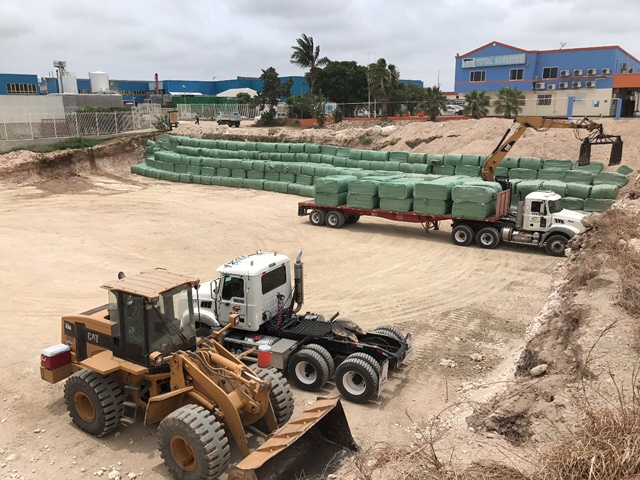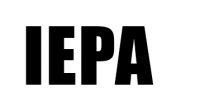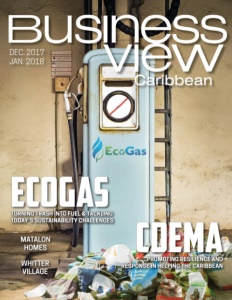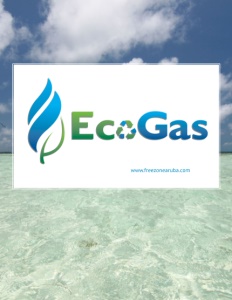EcoGas
Turning waste into fuel
Business View Caribbean interviews the team at EcoGas, a waste-to-energy company in Aruba as part of our focus on best practices in the Caribbean.
EcoGas Free Zone N.V. is a subsidiary of EcoTech Aruba N.V., a company established in 1999, under the umbrella of the Aruba-based, MetaCorp N.V. Metacorp’s business interests include movie theaters, a heavy equipment transportation company, a Coca-Cola bottling plant, which includes a brewery for the production of a local beer, a ready-mix concrete company, which also manufactures blocks and pavers, stevedoring concerns in the country’s ports, a recycling plant that turns demolition rubble into aggregate and wash water from the bottling plant into semi-potable water for use in the concrete plant, and the aforementioned, EcoTech, which offers a suite of waste management collection programs for commercial, industrial, residential, and maritime clients.
Business View Caribbean set out to find out exactly how and why this company had come about, and also, how it navigates to assist Aruba in strengthening its commitment to the important and timely issues of sustainability and renewable energy. In doing so, we discussed EcoGas’s beginnings and evolution with its Managing Director, Ramsey Halabi and MetaCorp’s CEO Eddy de Veer..
“We wanted to do something better with the municipal waste that we collected, which represents between 35 and 40 percent of all municipal waste on the island,” Ramsey and team reported. “It was going to an open landfill, which was an environmental challenge. EcoTech started first, with recycling, and the recyclable products that can withstand the cost of freight for export are now limited only to aluminum, scrap metal and carton paper. The rest, we separate, shred, bale, and bag in envirobales that contain municipal waste reduced to RDF (Refuse Derived Fuel), which is non-toxic and all carbon-based. These envirobales then get placed and capped into abandoned granite pits to restore them to its original grade.
The initial idea for EcoGas was to take the RDF and gasify it – converting the municipal waste into energy by means of pyrolysis, a thermochemical decomposition of organic material at elevated temperatures in the absence of oxygen. The word is coined from the Greek-derived elements pyro, “fire” and lysis, “separating.” While pyrolosis, as a technology, has existed for a very long time, EcoGas Features the only existing pyrolysis system yet that operated 24/7.
So, the company bought a process from an American firm to remain undisclosed. However, once the plant was installed and ready for commissioning, it turned out that it was not sustainable. For the following two years, experts were engaged from Europe and the States to troubleshoot, change, and re-engineer many of its components. Finally, it was able to deliver gas to the power plant of Aruba for a period of several months, including a seven day, 24/7 test of the Caterpillar engine, with the Caterpillar experts on island.
The vision was for EcoGas to become the first waste-to-energy company in the Caribbean – significantly reducing non-recyclable waste, while concurrently helping Aruba to become less dependent on imported fuel. The gasification plant was projected to produce approximately two percent of the island’s total energy needs. Halabi and the EcoGas team decided to park the gasification plant awaiting future negotiations. Details of the negotiations are under a non-disclosure agreement and cannot be publicized
Meanwhile, instead of gasifying the MSW (Municipal Solid Waste), EcoGas is baling it and burying it in open pits. Once the problem with the power company is solved, EcoTech has sufficient capacity to handle all of Aruba’s MSW, and EcoGas will ramp up again. At that point the landfill can be rehabilitated and capped.
The details of of the deadlock of the gasplant is based on specs that needs to be agreed on. There are alternatives s.a. relocation of the gas engine and convert the gas into electricity and submit this to the power plant, or investing in additional equipment for further refining of the gas, but all those are still in the negotiation pipeline. The gas plant is not only good for Aruba but for any island or remote community where there is no way of disposing of waste. This is a way of getting rid of the waste, as well as generating power at reasonable prices. We’re looking to take this technology to the rest of the world, because there’s a demand for it. We’ve tried, over the years, to find somewhere in the world where there is an operation such as this, and there is none.”
The EcoGas team believes that in order to scale up and, someday, export the waste-to-energy technology that the company has initiated, it will need to partner with a larger company. However, it certainly appears as if they shouldn’t have any problem finding a willing teammate; it could very well be any large company related to the waste and/or energy sectors. Due to MetaCorp’s geographical location and its presence in a multi-national and multi-lingual society, it is well-positioned to act as an intermediary, serving as a go-between between Aruba and any company that is looking to do business in the region.
The technology and precedence with which EcoGas has operated has established it as a company that is forward thinking, and ready to lead the Caribbean region, and perhaps even the global stage, as the world faces today’s sustainability challenges.
Check out this handpicked feature on Milo Butler and Son Ltd in the Bahamas.
AT A GLANCE
WHO: EcoGas Free Zone N.V.
WHAT: A waste-to-energy company
WHERE: Barcadera, Aruba
WEBSITE: www.freezonearuba.com
PREFERRED VENDORS

Titus Maintenance – Titus is an integrator for companies that operate material recovery facilities. It supplies equipment such as shaker screens, cross-belt magnets, conveyors, drum-feeders, vacuum systems, and sorting platforms. Titus also provides maintenance services for its customers. – www.titusservices.net





